A Hydrafacial pretty much guarantees lifted, glowing skin—and it's a great instant boost
Ideal for sluggish winter skin
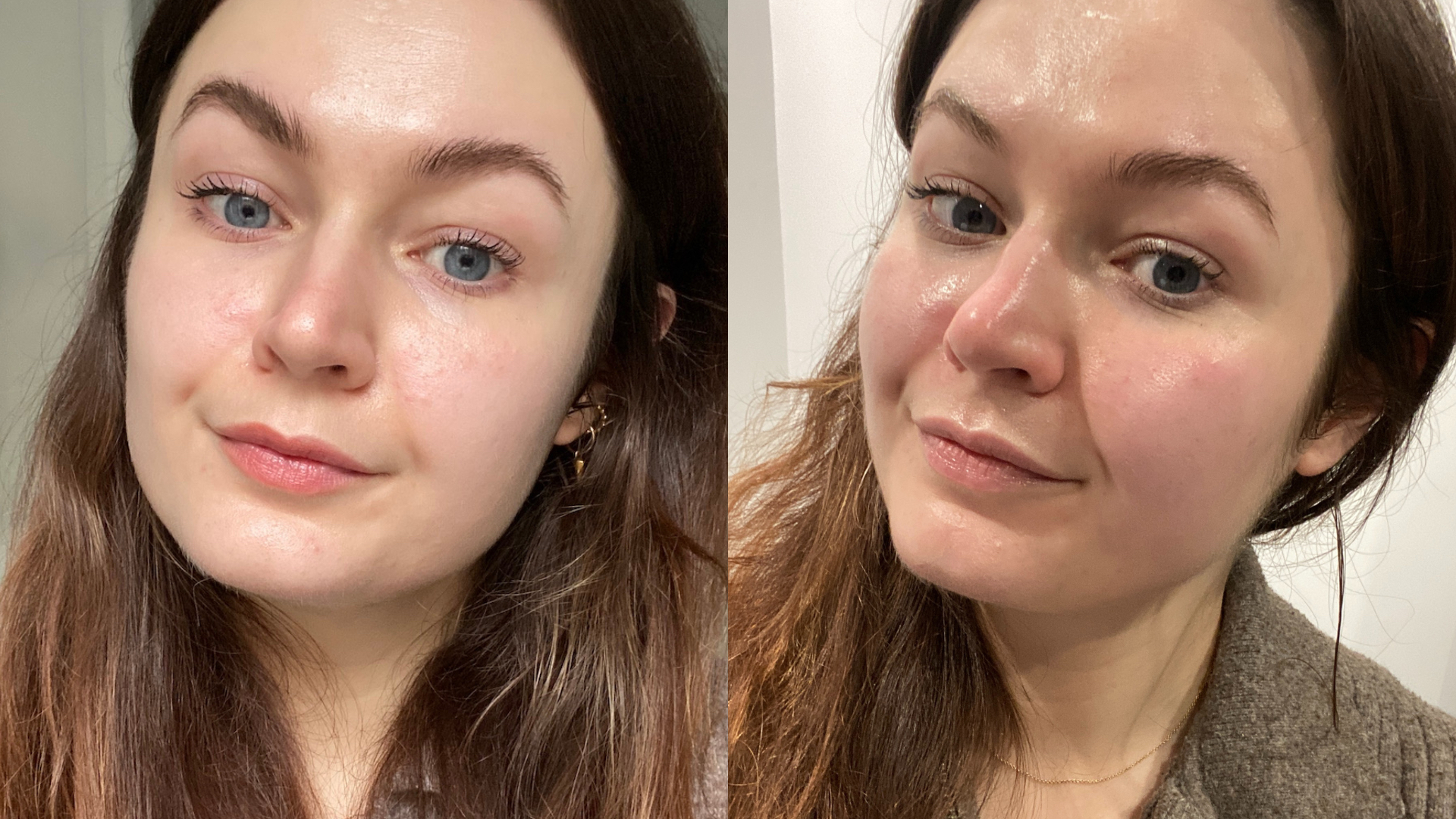

With this cold, dry, blusterous weather, it’s the most wonderful time of the year to experience sluggish skin. If I get a facial I want it to be hard working and, on that basis, a Hydrafacial is one of the best facials that I’ve tried. There’s no such thing as a quick fix for skin, but you can see a difference in your skin almost immediately.
I’d tried this treatment just once before and loved the results—my skin was immediately smoother, clearer and dewier. Ahead, I’ve explained how a Hydrafacial treatment works and why I think it’s a brilliant investment, whether you simply feel your skin needs a bit of care or you're prepping it for a big event. The proof is in the pudding, so I’ve also included my own before, during and after images from a recent treatment at Mallucci Mayfair in London. Here’s what I think you should know.
What is a Hydrafacial?
A Hydrafacial essentially involves deeply cleansing, exfoliating and hydrating the skin using a hand-held device. "Delivering a unique hydradermabrasion technique using patented Vortex-Fusion Technology, it painlessly removes impurities from within the skin’s surface while simultaneously hydrating skin with nourishing boosters," says Nilam Holmes, aesthetic practitioner and owner of Dermaspa. Different booster serums can be incorporated to address different skin concerns, such as fine lines and wrinkles or blemishes, for example.
Before a Hydrafacial, many over-the-counter skincare actives should be discontinued for at least a few days, or longer after finishing certain prescription treatments. It’s worth contacting a provider before you book to discuss anything that may pose an issue, however, the treatment won't be carried out on those with certain conditions.
“Before every Hydrafacial, patients are required to complete a pre-treatment consent form to outline any contraindications that may affect treatment eligibility,” Nilam explains. “These include those who have certain allergies, are pregnant, lactating, active skin infections, are taking certain medications. Hydrafacial partners can treat their patients on a case-by-case basis.” This is one reason why it’s so important you check you are visiting a licensed Hydrafacial provider—you can view a full list via the brand’s website.
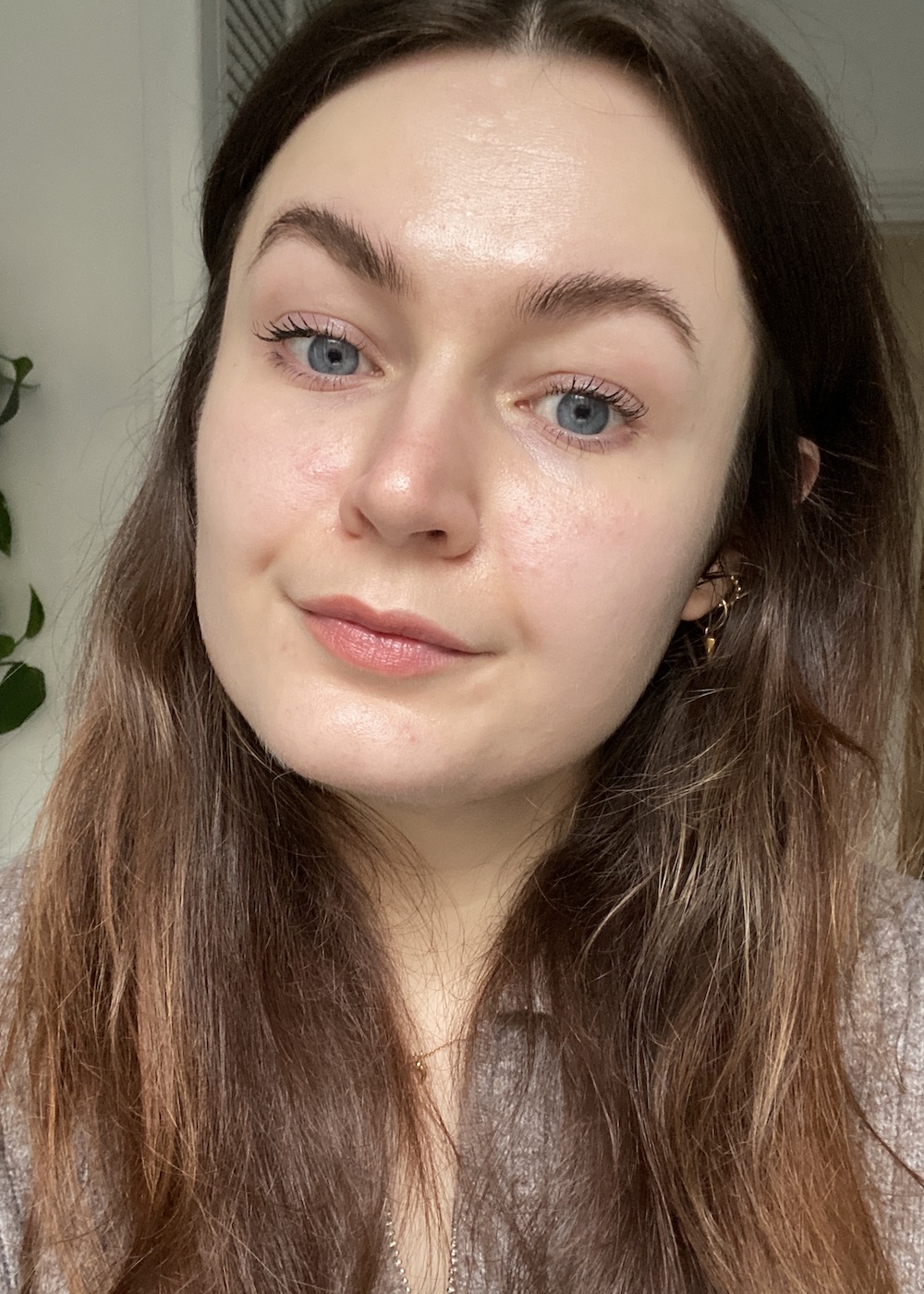
Lucy's skin the morning of the Hydrafacial, wearing SPF
What happens during a Hydrafacial?
You’ll first discuss your skin and current routine with your therapist. This is particularly important if it’s your first Hydrafacial—either ever or with this therapist—as they’ll want a better understanding of your skin. Mine is quite oily and prone to congestion, as well as a little redness.
There are three steps involved in the Signature treatment: cleansing, extraction, and hydration. The Deluxe treatment also incorporates a booster and LED for five steps in total, while the Platinum (which I had) starts with lymphatic drainage for six steps.
Celebrity news, beauty, fashion advice, and fascinating features, delivered straight to your inbox!
After a thorough cleanse and exfoliation (and your booster if you’ve opted for one), the extraction is the section that really cleans out your skin. Once your Hydrafacial is over you’ll have a chance to look at the gunk that’s come out of your skin—AKA your “Gunkie”—which is gross but satisfying. Your therapist may also perform manual extraction on any particularly stubborn areas.
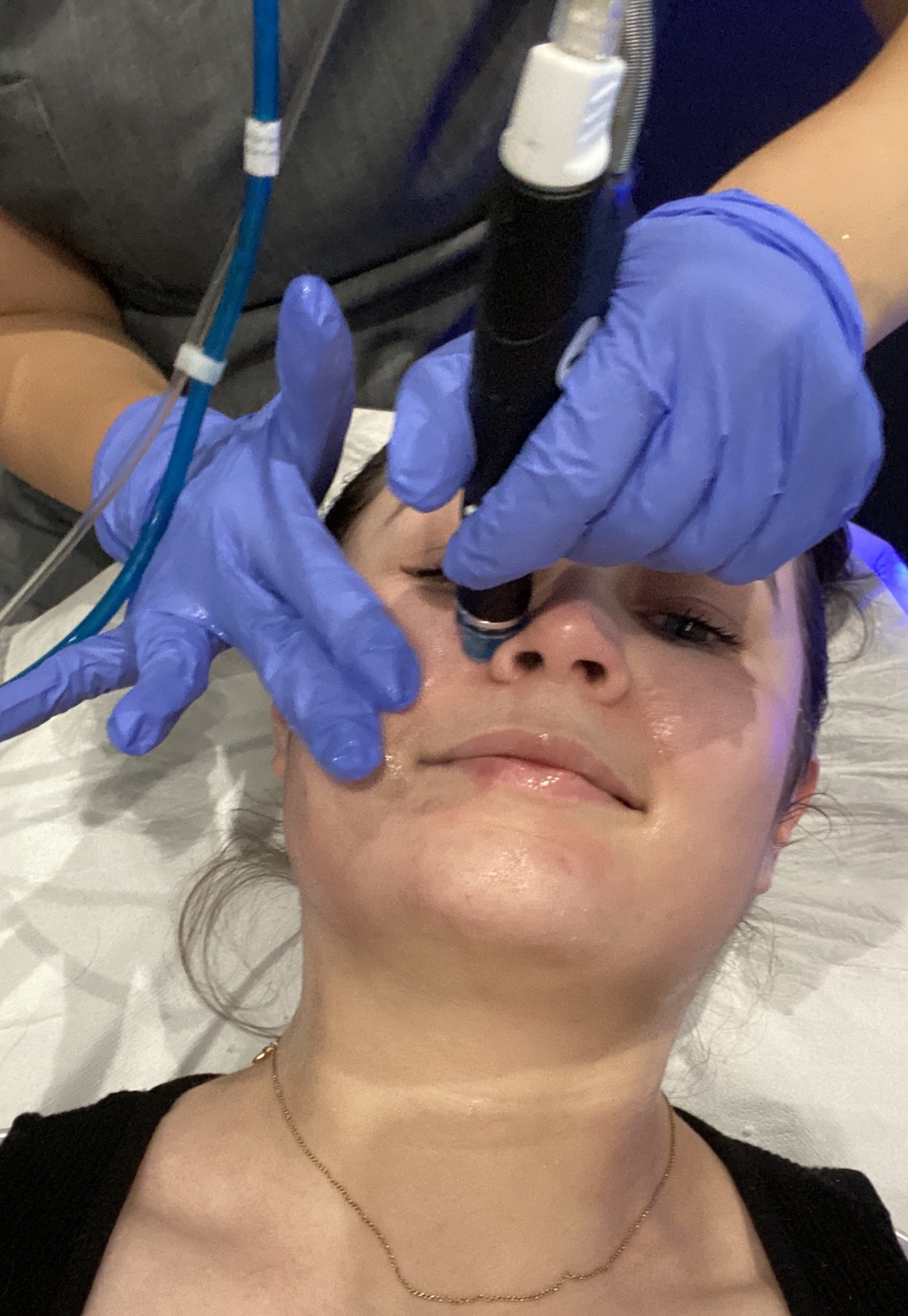
Lucy during the Hydrafacial
The skin is then blasted with a cocktail of nourishing ingredients to give it a much-needed hydration boost, ending with the LED in the case of Deluxe or Platinum treatments. My therapist applied skincare products including an SPF, which I believe had a very slight tint to it, and lip balm, and I was then free to go.
What can you expect from Hydrafacial results?
Initially, you’ll notice the skin is dewy and glowy. "[You can] expect to see visible results after your first treatment—the proof is in your Gunkie extractions!” says Nilam. “Skin will look clearer, plump and hydrated, and will feel smooth and healthy. The treatment extracts dead skin cells, and blackheads, and skin feels tighter and plump.”
Nilam adds that, if you’ve also had a booster as part of your treatment, you’ll notice brighter, smoother skin in the days after your treatment, and that a programme of Hydrafacials can help to address concerns like breakouts or hyperpigmentation longer-term.
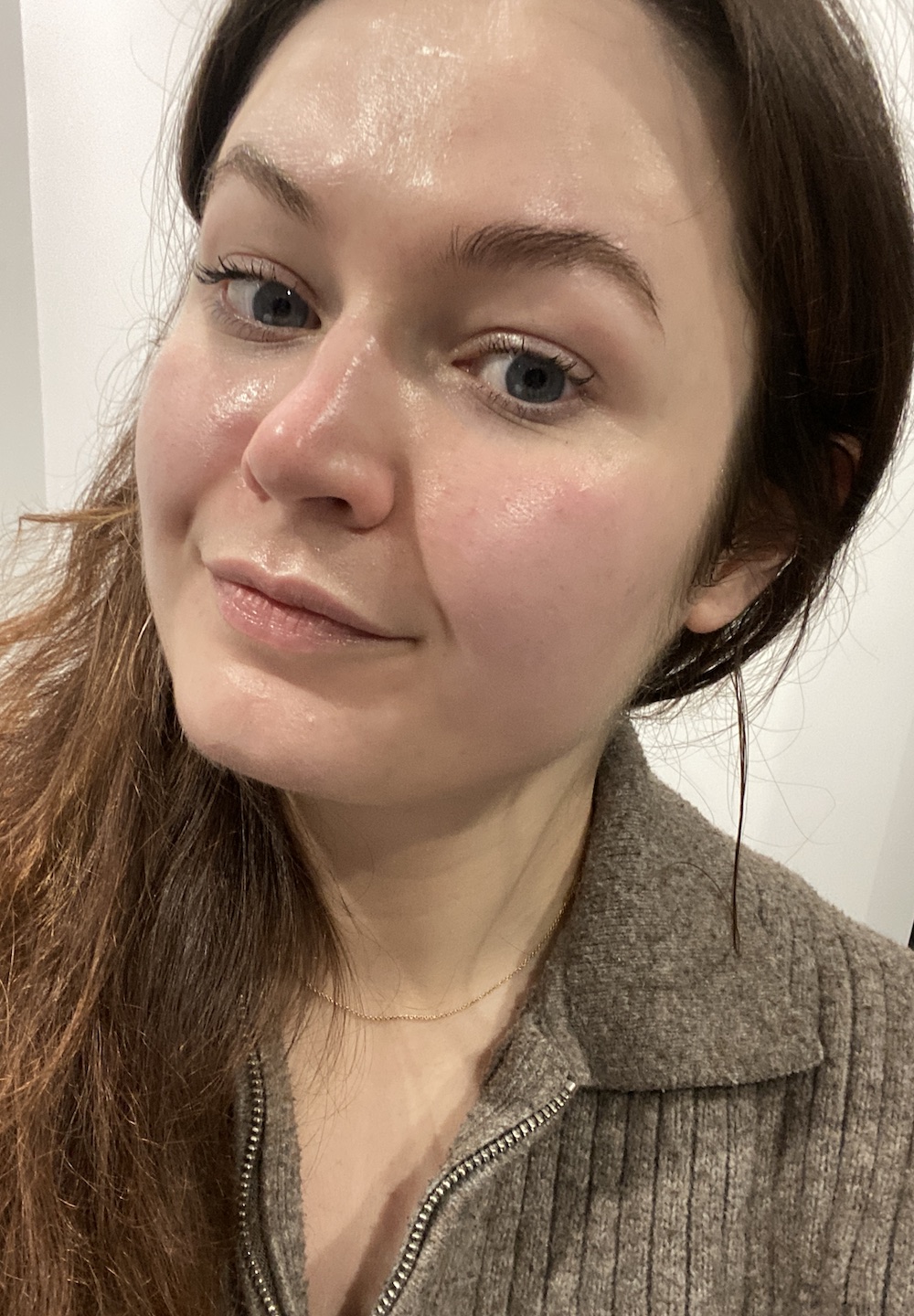
Lucy's skin straight after the Hydrafacial
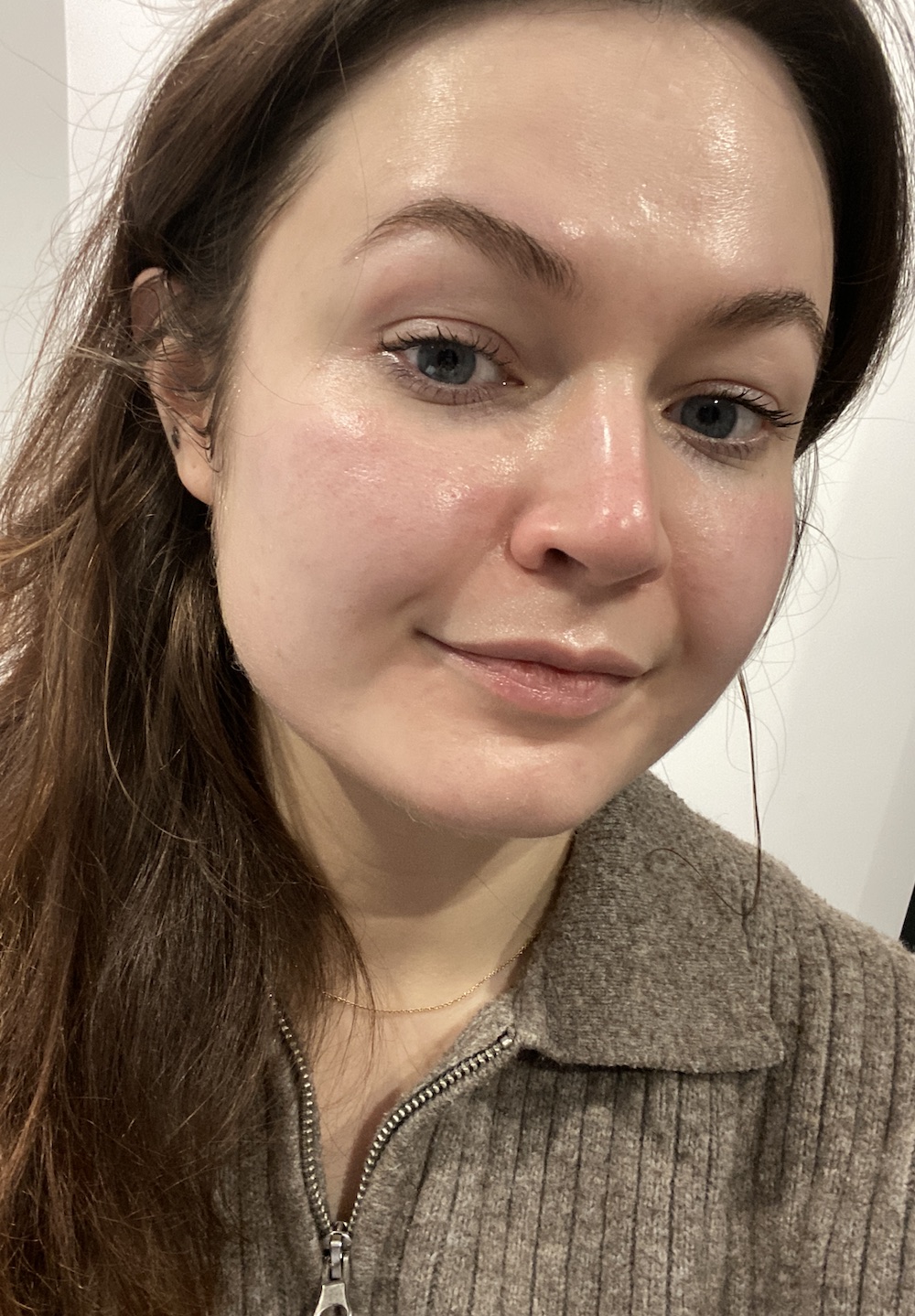
Lucy's skin straight after the Hydrafacial
I experienced a small amount of redness immediately afterwards—something that’s pretty normal for my skin—that subsided within a few hours of the treatment ending. But what was really noticeable in the 'after' pictures was how clear and glowy my skin was. The following morning, my skin looked even clearer and more even-toned, as you'll see below.
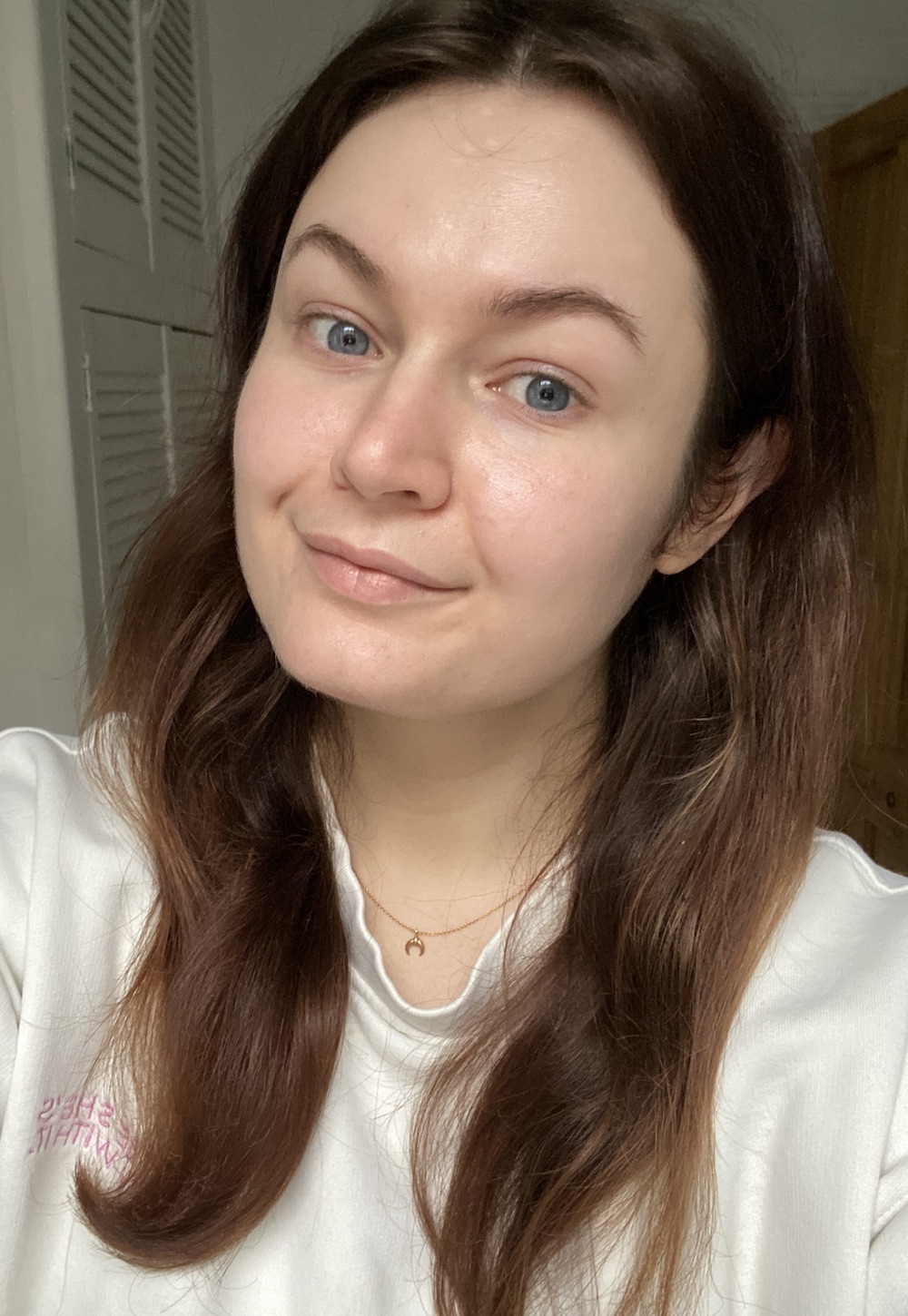
Lucy's skin the day after the Hydrafacial with no make-up
What's the Hydrafacial aftercare and downtime like?
Because the treatment is non-invasive, there’s no downtime. You may experience some temporary redness or discoloration and should avoid intensive exercise, saunas, steam rooms, or hot showers and baths for 24 hours afterwards. Basically, see it as an excuse to take it easy for the following day.
Depending on your treatment, you'll also be advised on how long to exclude products like retinol or certain acids from your skincare routine. My therapist also added that it’s advisable not to wear make-up for at least 4-6 hours post-treatment.
In short, if your end goal is clearer and more hydrated skin, I can’t recommend Hydrafacial enough. My skin had been feeling seriously sluggish and, as the pictures documenting the results show, this has given it a huge boost.
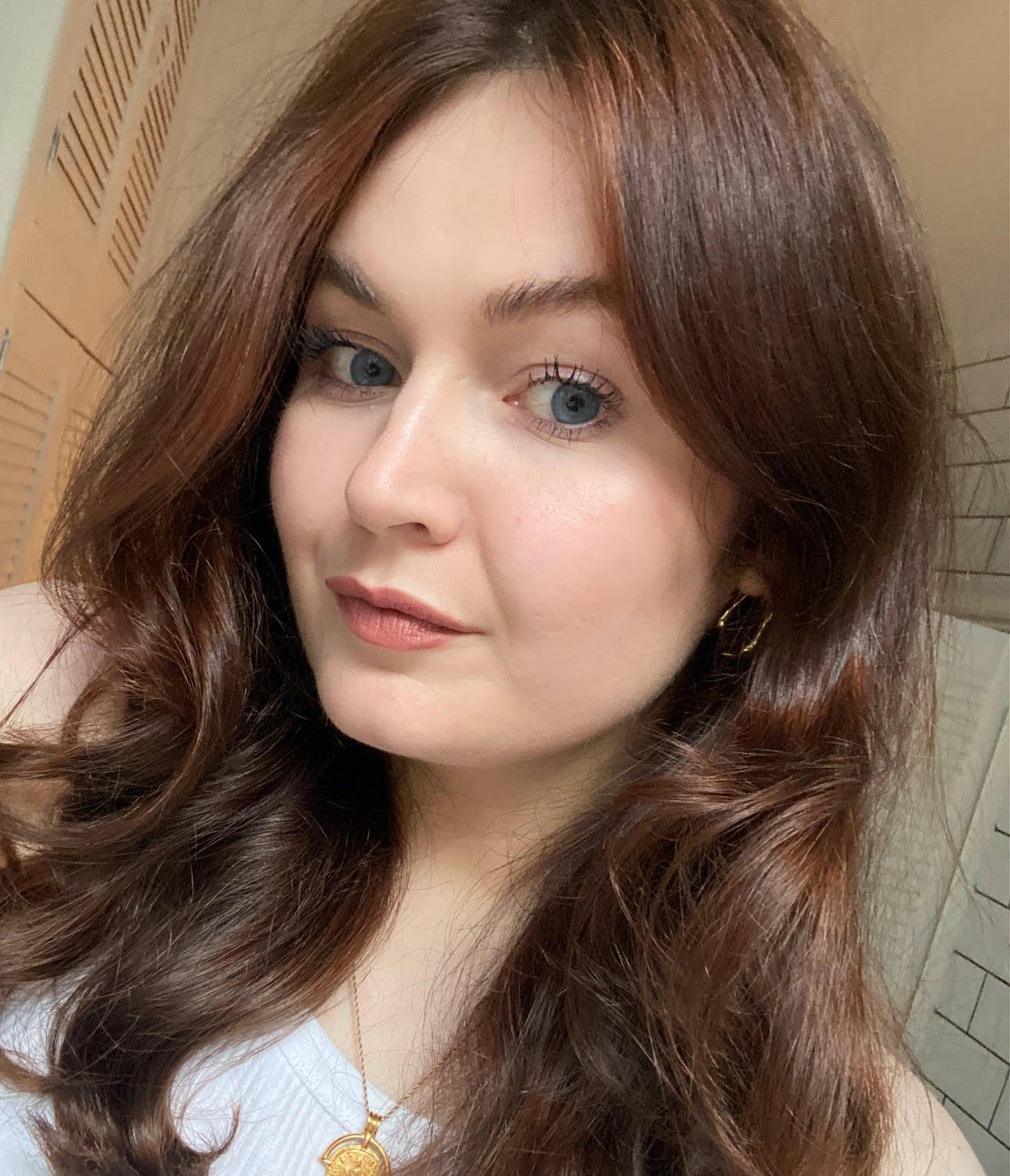
Lucy is a freelance beauty editor and contributor at Marie Claire, and has also written for titles including Cosmopolitan, Refinery29, Glamour and woman&home. She was previously Marie Claire’s junior beauty editor. During her career, she’s covered everything from backstage beauty at fashion week to interviews with famous faces like Drag Race royalty and Little Mix. As for her beauty ethos, she’s a big advocate for not having to spend a fortune on beauty products to get good results. When she’s not got beauty on the brain you’ll probably find her reading or Netflix-ing.